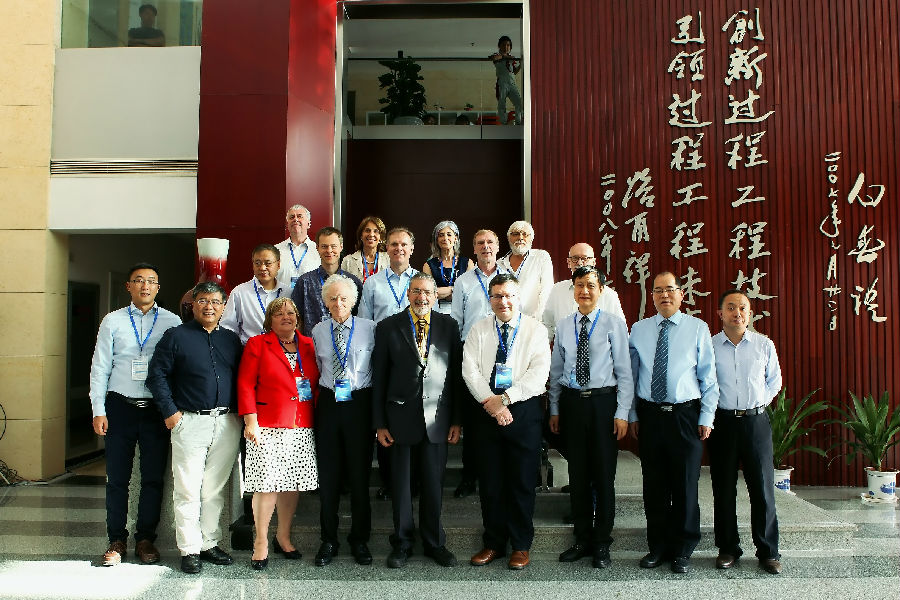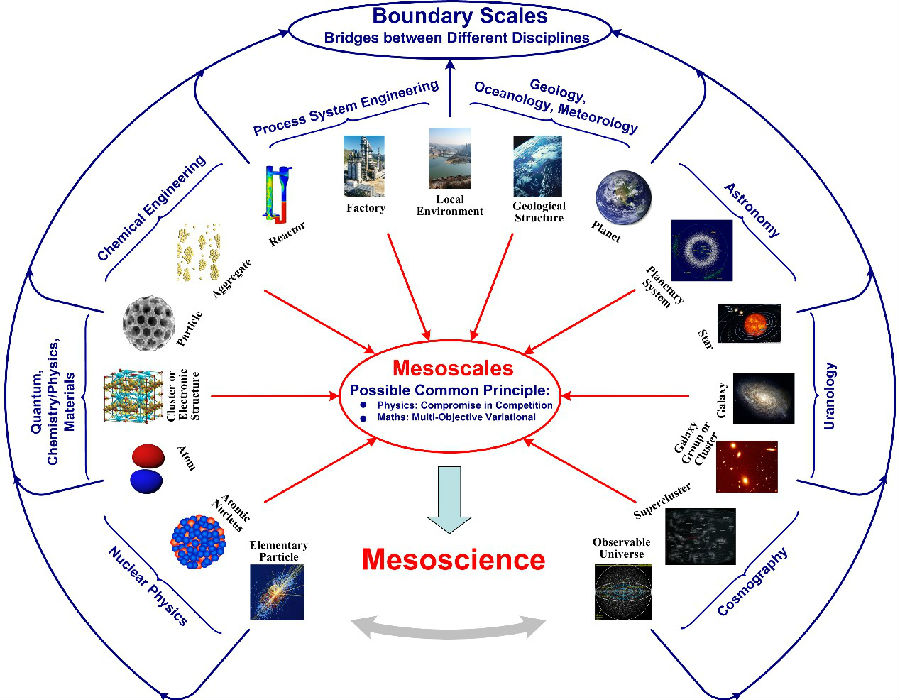Initiated in 2018, the International Panel of Mesoscience (IPM) aims to promote and assess the science and technology related to mesoscales in nature and engineering. It also organizes the activities, conferences, and seminars to discuss the recent development of Mesoscience in different areas. The IPM involves experts from all over the world who contribute to the work of IPM and volunteer their time and efforts to promote the research of Mesoscience and its roles in science and engineering. IPM experts also assess the scientific findings and publications relevant to Mesoscience each year to provide a comprehensive summary and review.
There is a gap between the microscale to the macroscale, which leads to our poor understanding on the complex phenomena. For instance, we know well the structure of atoms and molecules. But we face challenge to build up desired materials by assembling atom or molecules together. In chemical engineering, we know well the structures and physical properties of particles. But we have difficulty to predict their floating and aggregation in fluidized beds, which leads to the problems of scale up. Therefore, to study complex systems requires the observation of phenomena at multiple scales, without ignoring interactions, which is the main issue to be discovered by mesoscience.
In the early of 1980s, scientists in Chinese Academy of Science started to investigate the complex phenomena in fluidized bed. They found that the floating and aggregation of particles are dominated by the particle phase to realize minimal packing voidage and the gas phase to realize minimal resistance. The compromise in competition of these two mechanisms dominates the dynamics of particles aggregates, as well as the reaction and transport properties of fluidized bed. Based on this understanding, the EMMS (energy minimization multiscale) model was developed to depict the complex phenomena. After the continuous effort of 3 decades, the EMMS mode has been evaluated in different systems, including turbulence, materials, protein, emulsion, gas-liquid flow and so on.
In the past 10 years, the EMMS model and the mesoscience has experienced a quick development. In 2013, the National Nature Science Foundation of China has launched a Major Research Program of Mesoscience, which attracted Chinese scientists with different background to pay great attention on mesoscales. At the same time, mesoscience arose extensive debates and discussion in other countries and a number of scientists agree well with the concept of mesoscience proposed by the Chinese scientist. In 2017, more than 20 well-known scientists from 10 countries were invited to Beijing to have the discussion on how to lead the development of mesoscience. The idea to establish the international association of mesoscience was proposed.
The international association of mesoscience will be based on the Chinese Society of Particuology in the beginning and hosted by the Institute of Process Engineering, Chinese Academy of Science. The world congress of mesoscience and the journal of MESO are being planned. By establishing the internal association of mesoscience, we expect to integrate the international effort to explore the mesoscience and call for more effort in this field.

 Search
Search




 京公网安备110402500047号
京公网安备110402500047号